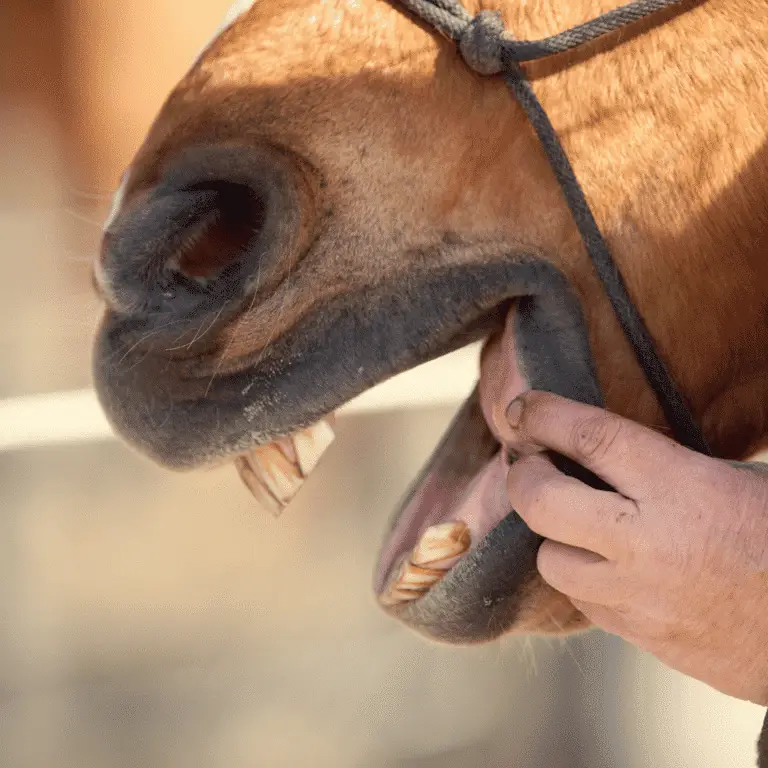
Step Mouth in Horses
Seek veterinary advice if you suspect this disease.
Step mouth is a dental condition where uneven wear causes one or more teeth to develop a step-like appearance, affecting chewing efficiency and comfort.
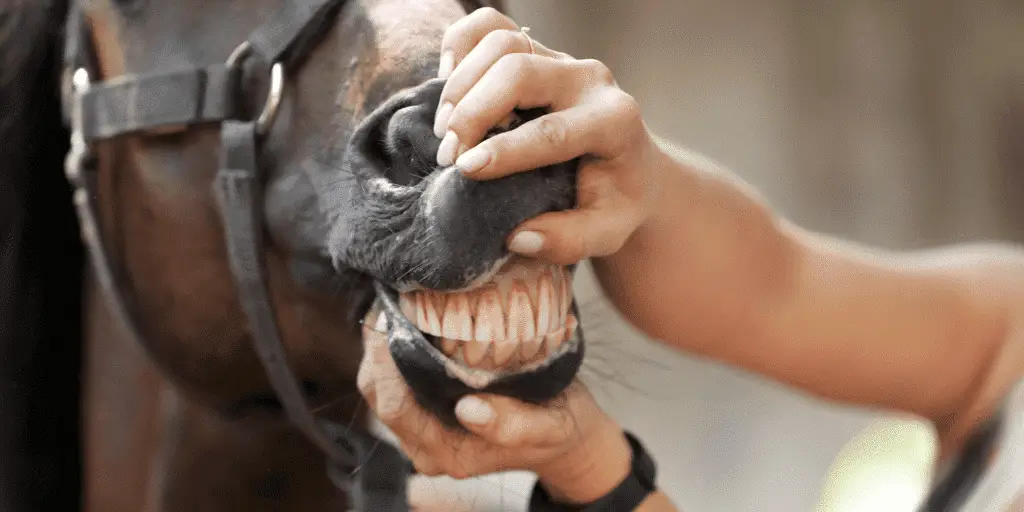
Seek veterinary advice if you suspect this disease.
Periodontal disease is one of the most painful conditions that can occur in the horse’s mouth and is the number one cause of premature tooth loss in adult horses, potentially able to affect incisors, canine teeth, and cheek teeth.
The disease is characterised by inflammation of the structures that support the tooth (including the gum, periodontal ligaments and the bone within which the tooth sits). It can occur secondary to missing teeth, diastemata (gaps between teeth) or calculus (plaque) on the teeth amongst other things. The normal tight seal between the tooth and surrounding soft tissues is lost allowing food material to become trapped in the gap. This sets up an infection and causes further recession of the gum. This cycle can eventually lead to infection tracking along the edge of the tooth down to the root or into the jawbone.
In severe cases, the tooth may become loose or fall out, obviously causing significant pain in the process.
Treatment of periodontal disease involves a thorough assessment of the tooth and surrounding soft tissues with careful cleaning and assessment of the depth of any periodontal pockets. In some cases, the widening of gaps between teeth may be recommended, which reduces the amount of food getting trapped in the gap. Occasionally teeth may need to be extracted if the disease process has progressed too far. The extent of bone loss, if any, should be evaluated. If the horse has acute symptoms such as inflammation and bleeding, a course of antibiotics will be prescribed to combat the infection.
Horses are often able to adapt to the early stages of this disease and may not show obvious signs until the process is advanced. Prevention is done by a thorough oral examination with bright light, dental mirror and dental pick/probe, and in some cases, even a dental endoscope (“oroscope”) every 6 months to a year, by a qualified vet. In many cases, sedation administered by a vet will be required for this thorough examination.
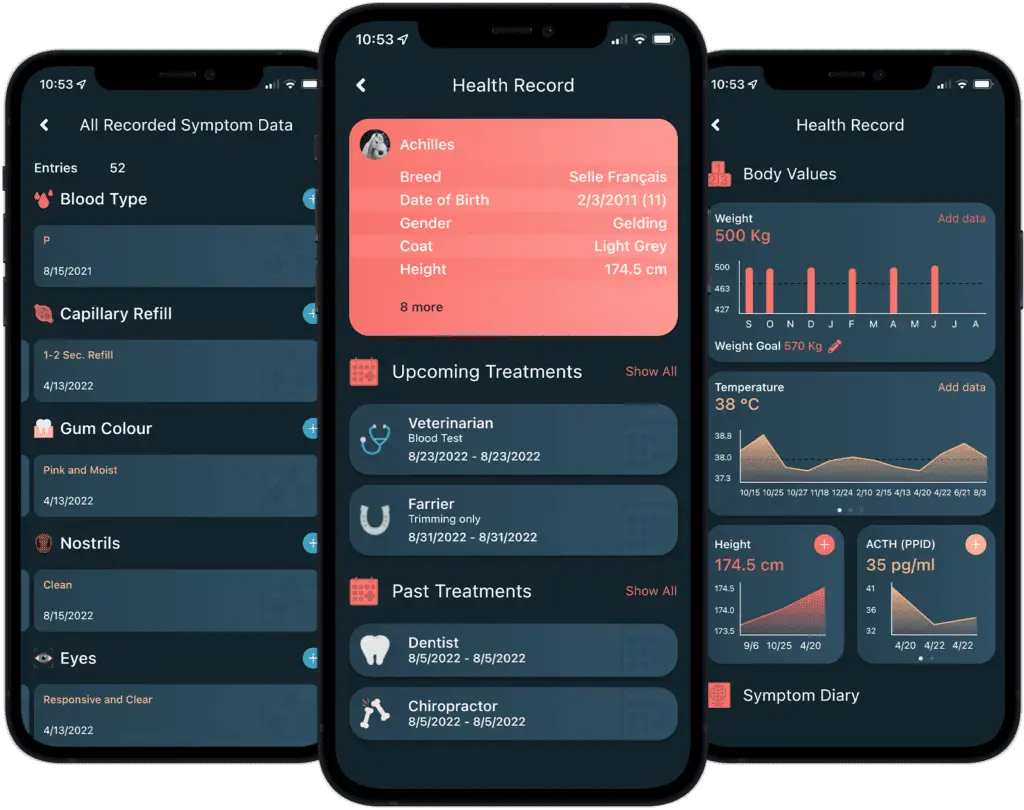
Digital health management offers numerous benefits in modern equine healthcare.
With the Happie Horse App, you can track symptom patterns and body values, such as Temperature, Pulse and Respiration. Allowing you to notice abnormal changes in body and behaviour early on, leading to more successful treatments.
The Happie symptom checker allows you to add all of your horse’s abnormal symptoms in order to present potential causes and diseases.

Seek veterinary advice if you suspect this disease.
Step mouth is a dental condition where uneven wear causes one or more teeth to develop a step-like appearance, affecting chewing efficiency and comfort.
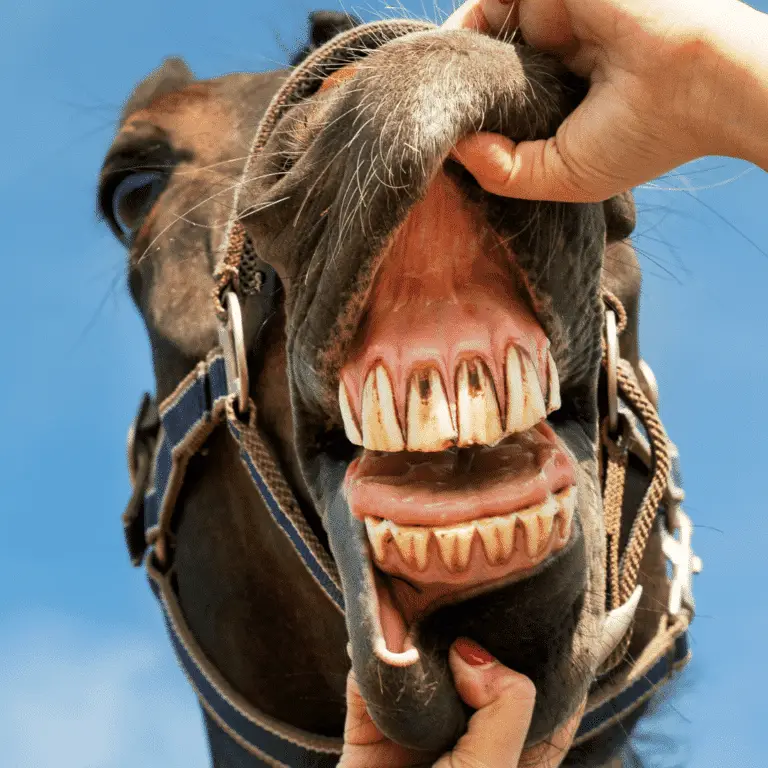
EOTRH Syndrome in Horses Seek veterinary advice if you suspect this disease. Equine Odontoclastic Tooth Resorption and Hypercementosis, also known
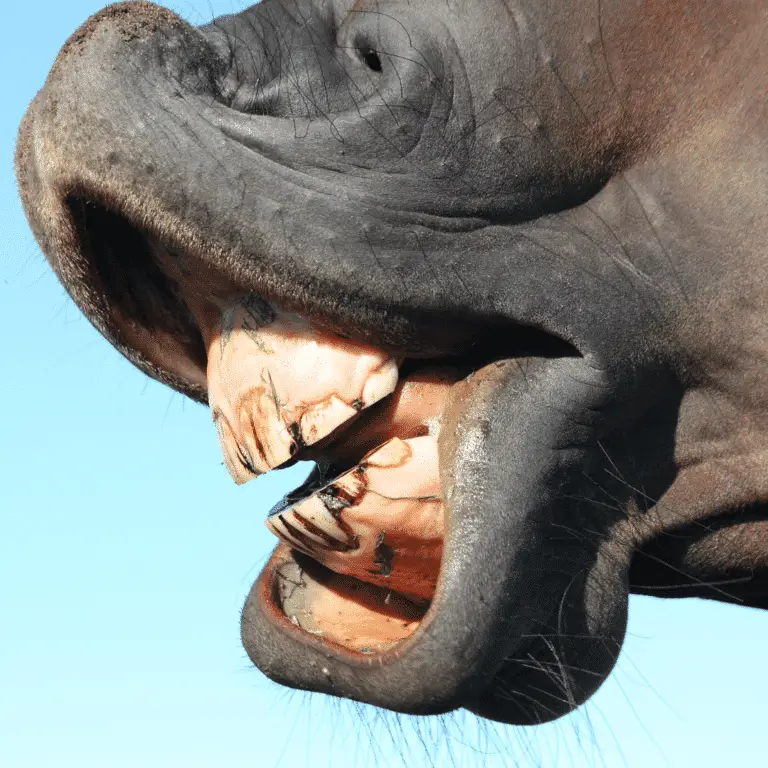
Wave Mouth in Horses Seek veterinary advice if you suspect this disease. Wave mouth is a dental condition commonly seen